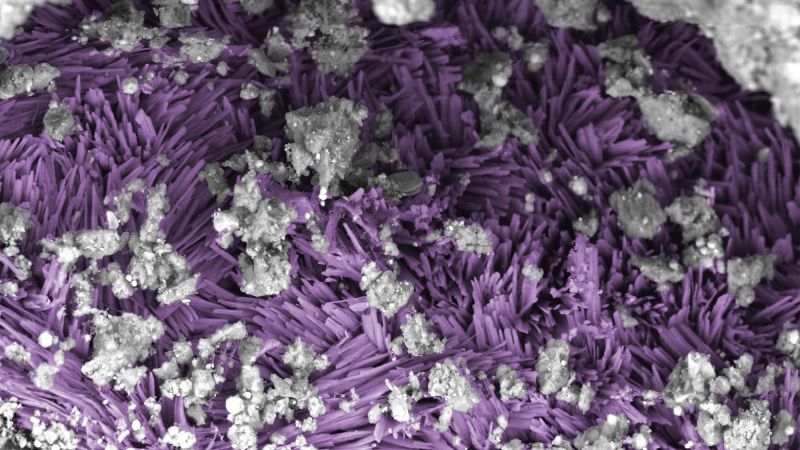In recent research, scientists have made groundbreaking discoveries regarding the near-Earth asteroid Bennu, which is believed to have played a significant role in the history of life on Earth. The samples collected during NASA’s OSIRIS-REx mission, which returned on September 24, 2023, provide crucial insights into the organic compounds and essential minerals involved in the genesis of life. These findings suggest that asteroids could have delivered the fundamental building blocks necessary for life to our planet during its formative years.
Bennu is classified as a carbon-rich rubble pile asteroid, indicating it was once part of a larger parent body before breaking apart due to impacts. The rocks and dust samples analyzed have shown an exciting array of organic compounds, including water, carbon, nitrogen, and vital minerals. The team led by Dr. Daniel P. Glavin from NASA’s Goddard Space Flight Center confirmed that the asteroid contains many of the fundamental chemical building blocks of life, such as amino acids and nucleobases essential for DNA formation. These revelations signify that Bennu acted much like a cosmic factory, producing vital materials capable of fostering life.
Dr. Glavin, who recently published a study in the journal Nature Astronomy, expressed enthusiasm over these findings, suggesting that asteroids like Bennu might have played an instrumental role in delivering life’s essential ingredients to Earth and potentially other celestial bodies in our solar system. Furthermore, a separate associated study revealed previously unseen salts and minerals within the Bennu samples, highlighting the complex chemistry occurring on this asteroid.
The significance of the findings was underscored by Dr. Tim McCoy, curator of meteorites at the Smithsonian’s National Museum of Natural History. He commented that these new papers collectively reveal that Bennu is a far more intricate and fascinating place than previously assumed, drastically enhancing our understanding of early solar system chemistry and biology.
The OSIRIS-REx mission marked a monumental achievement in space exploration, being the first U.S. endeavor to collect samples from an asteroid. The spacecraft collected the samples in October 2020 and transferred them back to Earth this past September. Researchers meticulously extracted the materials to avoid contamination from Earth’s atmosphere, ensuring the integrity of the extraterrestrial materials.
The results of the analysis yielded astonishing discoveries: over 33 amino acids, the essential building blocks of proteins, were identified, including many not typically found in living organisms. Additionally, the samples contained all five biological nucleobases which serve as fundamental components of genetic material. Unlike older meteorite samples, which had been subjected to earthly chemical processes, Bennu’s materials have remained pristine, thereby enhancing confidence in their extraterrestrial origins.
In her comments, Nicky Fox, associate administrator for NASA’s Science Mission Directorate, characterized the work as a remarkable scientific discovery. This research points to the idea that Bennu’s ancient environment may have allowed for complex organic molecules to form, providing a fascinating glimpse into the conditions that existed when the solar system was still in its infancy.
Moreover, the findings raised questions regarding the potential for life to exist elsewhere in the solar system. The processes observed in Bennu’s parent body might also be present on other icy celestial bodies like Enceladus, where similar briny environments could support the emergence of life. Researchers are particularly focused on understanding the evolution of these chemical compounds over time and the implications for how life may have been seeded on Earth.
Interestingly, the mixture of amino acids found within the samples also raised new questions about the origins of chirality in biological molecules. On Earth, life predominantly uses left-handed amino acids; however, the Bennu samples revealed an equal distribution of both left and right-handed forms, leading scientists to speculate about the processes that may have led to this phenomenon.
The implications of Bennu’s samples extend far beyond mere curiosity; they provide vital clues that could enhance our understanding of how life’s building blocks formed and evolved, set against the backdrop of our solar system’s complex history. Future explorations of other icy environments may prove critical to unraveling the mysteries of life’s beginnings, continuing the quest for understanding our origins and the potential for life beyond Earth. As researchers delve deeper into these findings, we stand on the brink of new discoveries that could reshape our understanding of life’s cosmic connections.



